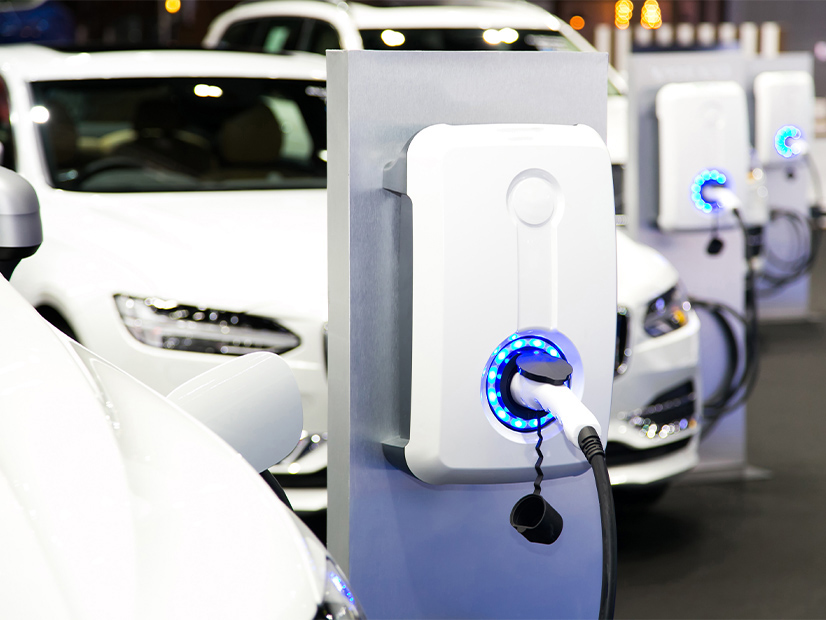
Washington’s government should explore joining with businesses to build and share electric vehicle charging sites, Gov. Jay Inslee suggested last week.
Inslee discussed the issue Wednesday on a video call with representatives from several state agencies to discuss their progress in trimming carbon footprints.
Part of the meeting covered installing fast chargers for EVs at state offices around Washington over the next decade. Inslee noted that state offices with lots of fast charging stations will likely see the chargers not being used for significant amounts of time, with private businesses finding the same.
The governor suggested that state officials connect with major businesses and organizations to jointly build charging areas and share their use. “I have to believe there are networking opportunities with larger groups,” he said.
Inslee is supervising government agency contributions to an overall state push to trim carbon emissions. A 2008 state law sets carbon-reduction targets of 45% below 1990 levels by 2030, 70% by 2040 and 95% by 2050. A 2021 Washington Department of Commerce report put the entire state’s carbon dioxide emissions at 99.57 million metric tons in 2018. The report shows that from 2016 to 2018, the transportation sector was the largest contributor, at nearly 45% of Washington’s emissions.
On Wednesday, Laura Watson, director of Washington’s Department of Ecology, said state agencies emitted 647,731 tons of GHGs last year, 13% below the goal set for 2020 and well below emissions of 879,036 metric tons in 2005.
The states ferry system — the largest in the U.S. — was the largest polluter last year at slightly more than 140,000 metric tons. The second and third largest emitters were Washington State University at 120,000 MT and the University of Washington at 100,000 MT.
The state agencies’ future goals are 483,470 MT in 2030; 219,759 MT in 2040; and 43,952 MT in 2050.
Last week’s meeting only covered charging station goals for Washington’s huge Department of Social and Health Services, which both owns and leases sites. DSHS goals for owned sites include 60 new charging ports on seven campuses by 2035 and 144 charging ports on more than eight campuses by 2040. The goals for the leased sites are 99 new charging ports on 59 campuses and 447 new ports on 99 campuses by 2035.
Inslee speculated that the state government could also help trim vehicle emissions by helping its employees install home charging stations.


